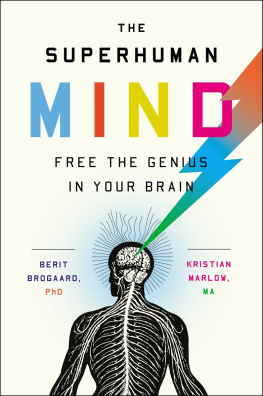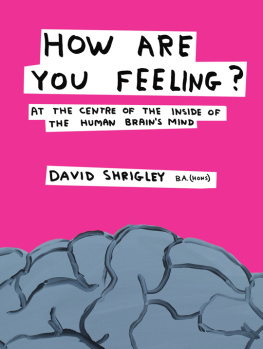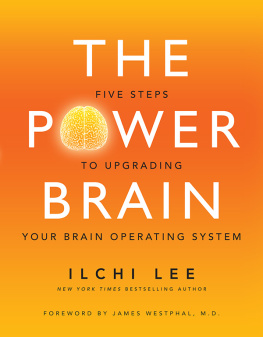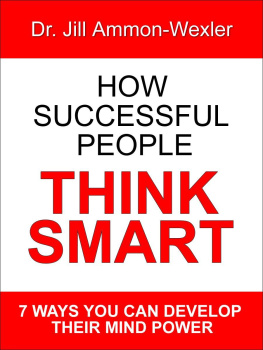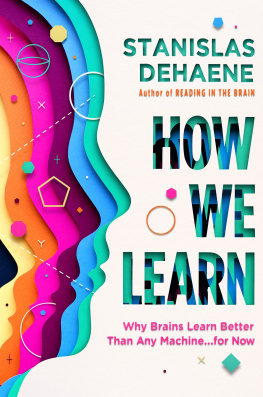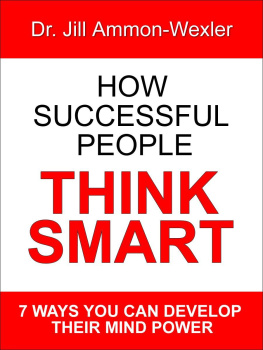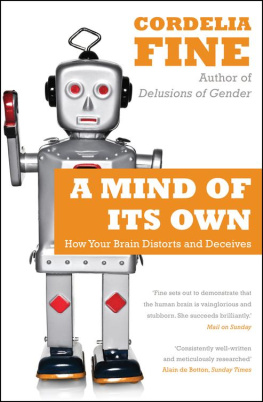Penguin supports copyright. Copyright fuels creativity, encourages diverse voices, promotes free speech, and creates a vibrant culture. Thank you for buying an authorized edition of this book and for complying with copyright laws by not reproducing, scanning, or distributing any part of it in any form without permission. You are supporting writers and allowing Penguin to continue to publish books for every reader.
Edward Adelsons Checkerboard Illusion 1995 by Edward H. Adelson
Brogaard, Berit.
The superhuman mind : free the genius in your brain / Berit Brogaard, PhD, and Kristian Marlow, MA.
Includes bibliographical references and index.
1. Self-actualization (Psychology) 2. Self-perception. I. Marlow, Kristian. II. Title.
While the authors have made every effort to provide accurate telephone numbers, Internet addresses, and other contact information at the time of publication, neither the publisher nor the authors assumes any responsibility for errors or for changes that occur after publication. Further, the publisher does not have any control over and does not assume any responsibility for author or third-party Web sites or their content.
Cover illustration originally published in Old-Time Anatomical Illustrations, Dover Publications, 2005
FOREWORD
S ome say that we use only 10 percent of our brain capacity. After my fifty-plus years of working with persons with savant syndrome, both congenital and acquired, I think that may be an overestimate. This book, with its meticulous and vast account of past and current neuroscience research, delivered in a very reader-friendly fashion, reinforces my impressions.
I met my first savants in 1962 when I started a Childrens Unit at a hospital here in Wisconsin. One boy had memorized the bus system of the entire city of Milwaukee. Another young patient, mute and severely disabled, could put together a two-hundred-piece jigsaw puzzle, picture side down, just from the geometric shape of the puzzle pieces. A third boy was a walking almanac of what happened on any day in history (this was BGBefore Google). And a fourth little lad made free throws with unerring accuracy, putting his feet in exactly the same place, holding the ball in exactly the same way, and tossing the ball in exactly the same trajectory, like a pitching machine.
It occurred to me then that this rare condition, in which extraordinary ability stands in stark juxtaposition to severe disability, was speaking volumes about hidden brain potential and brain plasticity. This impression was reinforced immensely when I later began to encounter acquired savantsordinary persons who suddenly showed extraordinary musical, artistic, or mathematical abilities that had apparently lain dormant until a head injury, stroke, or other damage to the central nervous system forced them to the surface.
I documented many cases of both congenital and acquired savants in my 2010 book, Islands of Genius: The Bountiful Mind of the Autistic, Acquired, and Sudden Savant. I wrote that both conditions hint at the little Rain Man within us all, but noted that the real challenge is how to tap into that dormant potential without enduring some brain injury or central nervous system catastrophe, and how to accomplish that as nonintrusively as possible.
This book addresses that challenge directly. It provides further convincing evidence of dormant brain potential within us all, and provides some clues as to how to tap into it in readily available, nonintrusive ways.
One way of tapping the potential of our superbrain, if we choose to, will be through intentional and deliberate effort to apply our existing artistic, mathematical, musical, or other skills to learning new abilities such as calendar calculating, lucid dreaming, or adding to our everyday memory capacity using specific mental imagery techniques. The book suggests that even synesthesia or perfect pitch can be learned to some degree, thus adding those elements to the neurotypical brains repertoire of abilities. Yet that does not detract from, nor explain, the innate, factory-installed instant access to the special skills of savants, both congenital and acquired. In these cases, such skills are not simply learned. In the savant, prodigy, or genius, nature contributes as liberally to extraordinary skills as does nurture, whether for ten thousand hours or more.
Another key to unlocking our brain potential may come from emerging technical approaches. The tyranny of the left hemisphere can be limited, temporarily at least, by using certain nonintrusive external electrodes, which allow right-brain, nondominant abilities to emergethe same abilities associated with savant syndrome. While the idea of a total division between the left brain and right brain is an oversimplification, the fact is the brain hemispheres do specialize in certain functions, so temporarily inhibiting the left hemisphere brain boss allows suppressed right hemisphere abilities and capacities to surface. Some naturally occurring nutritional supplements hold promise in enhancing brain function, as do some existing medications and experimental compounds. Evaluating risks and benefits with all of these is a constant balancing act, but formal efforts with these products are underway, as discussed in the book.
An even less dramatic approach, but still an intentional one, is what I refer to as rummaging around in the right hemisphere. We are generally a left-brain society, and logical, sequential thinking and languagespecialties of the left hemisphereserve us well. But that comes at the expense of the more creative, artistic, spontaneous, and subconscious capacities of the right hemisphere. As this book demonstrates, one can, because of brain plasticity, cause a shift to the right by deliberately visiting those capacities more frequently.
Finally, with all we are learning about dormant brain capacity and plasticity in neurotypical persons, as well as in those with exceptional brain function, the additional beneficiaries will be persons with existing handicaps or disabilities. While for most of us the goal is to find nonintrusive methods of brain enhancement, those with serious central nervous system diseases are already turning to techniques such as deep brain stimulation to treat conditions like Parkinsons disease or refractory depression. Like pacemakers for the heart, similar devices for persons with epilepsy might one day be used to abort seizures by applying to the brain the same principles that are used to treat serious heart arrhythmias. Already, a helmet device containing sensitive electrodes can allow some quadriplegic persons to move a computer cursor by merely thinking about it, and can even stimulate paralyzed muscles to restore motion and mobility.
In short, our efforts to explore, understand, and harness this most complex organ and capacity in the human bodythe brainwill not only enhance our everyday functioning but will propel us further than ever toward fully maximizing both the brain and human potential.

